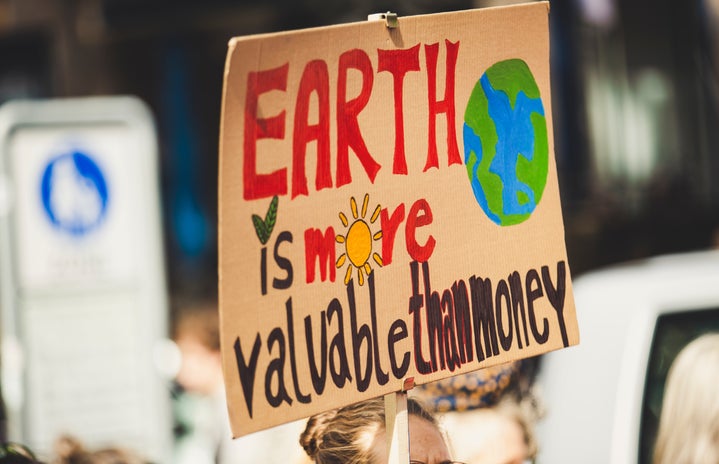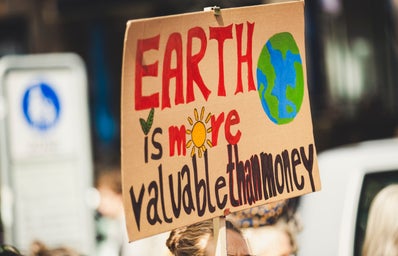As we approach the U.N. Climate Summit, our very real fears of climate change grow more urgent by day. The summit, which will take place from Oct. 31 to Nov. 12, reminds us of our role to protect our Earth. It’s easy for us to feel scared or overwhelmed by such a Sisyphean task that affects us all. Especially as young people, we can sense the rising importance of addressing climate change for the good of our own futures. With these ringing alarm bells, many people have been spurred to action to implement sustainable practices in their lives. Seeing these changes in attitude have been incredibly encouraging in inspiring hope for our planet’s future. However, the desire to combat these fears with action can also incite climate-related anxieties or guilt.
Social media has widely contributed to the heightening of global environmental awareness, with activists like Greta Thunberg taking center stage for Gen Z’s own movement. Bringing awareness to such important matters has uplifted support for a cleaner (and greener) planet. Entire social media accounts dedicated to educating viewers on sustainability have seen an uptick in the past few years. In my personal experience, I have found engagement on social media to be both helpful and harmful to navigating my own climate anxiety. On one hand, learning new ways I can reduce my carbon footprint or plastic intake can help me to feel like I’m making a difference. On the other hand, being exposed to a constant barrage of fear-inducing news has led to overwhelming anxieties. I’ve felt my individual actions to promote sustainability are in vain in comparison to the massive output of carbon emissions by corporations. And I’m not alone in this fear: A global survey through the BBC found nearly 60% of young people felt “worried or extremely worried” about climate change.
The question is, how do we know if our actions are enough?
According to a recent interview with Time Magazine, renowned environmentalist Jane Goodall encourages hope in younger generations.
“If you don’t hope that your actions can make a difference, you sink into apathy,” she said. “If young people succumb to the doom and gloom- if they lose hope- that’s the end.”
Her message dissuades any measure of complacency in the climate fight, while simultaneously validating the fears of young people.
The guilt that encapsulates our climate fears is often a result of feeling that we always need to be doing more. While this type of thinking could be construed as a motivator, it often leads to an increased sense of anxiety when you do something “bad” for the environment — regardless of if you really had a choice. I regularly experience environmental guilt over little things — whether that be buying a coffee drink with a plastic container or forgetting to bring my reusable bags to the grocery store. I’ve found this causes a heightened sense of guilt and anxiety, which can be extremely overwhelming as a constant in the back of my mind.
How do we combat environmental guilt?
The best way I’ve used to calm my anxieties is to recognize even small efforts are contributing positively to the climate fight. If you are continually trying to do better and make decisions that are more sustainable, you are doing your part. We can’t be 100% perfect environmentalists all the time, so making small choices to reduce your carbon footprint and plastic use are still encouraging change for our planet.
It’s also important to recognize when it’s okay to prioritize you and your mental health. If you’re starting to feel overwhelmed while “doomscrolling” on social media, take a break. Using plastic over reusable materials occasionally is okay, too. You’re only human, after all.
To limit guilt over sustainability, maintain a focus on progress rather than perfection in your efforts. Recognize your contributions are for the better, no matter how big or small. In the face of such unknowns in the future of our planet, we can all do our part to make improvements in our lives and band together in the climate fight.

